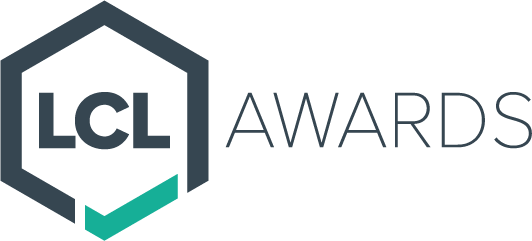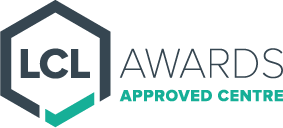Level 3 Award in Energy Efficiency for Gas and Oil-Fired Domestic Heating and Hot Water Systems
What is the Level 3 Award in Energy Efficiency for Gas and Oil-Fired Domestic Heating and Hot Water Systems course?
This regulated course has been developed to provide heating installers, service engineers and others involved with designing, specifying and installing gas and oil fired heating and hot water systems, with sufficient knowledge to design, install or upgrade heating systems that comply with latest requirements for energy efficiency. Learners will develop and practice the skills required for employment within the renewable and heating sector.
Who is the Award in Energy Efficiency course for?
Designed for heating engineers, design engineers and operatives in the building services industry, this qualification will enable learners to understand, and be competent when carrying out the design of heating systems in accordance with Approved Document Part L of the Building Regulations 2021 edition.
This is a CPD unit designed for operatives working within the Building Engineering Services Industry and is a pre-requisite to some other qualifications in the renewables sector.
Course Benefits
- Learn to design, install or upgrade heating systems that comply with the latest requirements for energy efficiency
- Optimise system performance and ensure compliance to reduce energy consumption and costs
- Learn key industry best practices to meet current and future regulations
- Learn sources of guidance for boiler efficiency, heating circuit design, hot water systems, water treatment, commissioning, controls, insulation, and circulators.
Accreditation / Qualification(s) Offered
Successful completion of this course will mean you will be awarded the Level 3 Award in the Energy Efficiency for Gas Fired and Oil-Fired Domestic Heating and Hot Water Systems by LCL.

LCL Assessment Structure
The assessment takes the form of a 1 – 25 dynamic multiple choice question e-assessment. The pass mark is 75%. Learners who fail to achieve the pass mark are permitted a re-sit at no additional cost. If they fail the examination a second time, they will be required to re-register for the course which will be chargeable in accordance with the current schedule of charges.
Examinations are only available using the LCL Awards XAMS system, no hard copy exams are available for this course.
What This Course Includes
This price includes course registration and exam registration, course materials and, if successful in passing the exam, an official LCL Level 3 Award in the Energy Efficiency for Gas Fired and Oil-Fired Domestic Heating and Hot Water Systems certification.
Delivery method:
 Face-to-face1 day course
Face-to-face1 day course- Enquire about this course
- LCL Certification
- Exam Included
- Small Classes
- Level 3 Qualification
- Free Exam Resit
 0% interest for 4 months with PayPal Credit. Find out more
0% interest for 4 months with PayPal Credit. Find out more
All prices are per person and exclude VAT.
This Level 3 Award in Energy Efficiency for Gas Fired and Oil-Fired Domestic Heating and Hot Water Systems course covers a wide range of topics, including:
Module 1 – Regulatory Framework and Efficiency Standards:
- Regulatory Requirements and Guidance
- Boiler Efficiency Standards
- Primary Circuits Type and Design
Module 2 – System Types and Design Requirements:
- Hot Water System Type and Design
- Preparation and Water Treatment
- Commissioning of Systems
Module 3 – Control and Insulation Standards:
- Control of Heating Systems
- Insulation Requirements
- Stand-alone Circulators
Associated Qualifications:
- Level 3 Award in Low Temperature Heating and Hot Water Systems in Dwellings
- Level 3 Award in the Installation, Commissioning and Maintenance of Air Source Heat Pump Systems
- Level 3 Award in the Installation and Maintenance of Small Scale Solar Photovoltaic Systems
This LCL Level 3 Award in Energy Efficiency for Gas Fired and Oil-Fired Domestic Heating and Hot Water Systems course is ideal for experienced heating engineers and designers who need to expand their knowledge of statutory energy efficiency requirements. Learners are expected to be working in the Building Engineering Services or other related sector.
By attending this course, you will acquire invaluable knowledge and skills that can benefit a wide range of professionals.
On completion of this course a learner should be able to state the regulatory requirements of:
- Minimum boiler efficiency standards for gas-fired and oil-fired heating appliances connected to ‘wet’ heating circuits
- Space heating primary circuits type and design for gas-fired and oil-fired ‘wet’ heating systems
- Hot water system type and design for gas-fired and oil-fired systems
- Preparation and water treatment of hot water systems and wet central heating systems
- Commissioning of hot water systems and wet central heating systems
- Minimum standards for the control of gas-fired and oil-fired wet central heating systems.
- Minimum standards for the insulation requirements of pipework for gas-fired and oil-fired wet central heating and hot water storage systems
- Sources of guidance for energy efficiency standards for gas-fired and oil-fired heating appliances connected to ‘wet’ heating circuits
- Stand-alone, glandless heating system circulators.
Enquire about this course
Please fill in the form below and a member of the team will be in contact with you as soon as possible. Replies are typically within 24 hours of your submission. Please allow additional time for bank holidays and weekends.
* Indicates required information